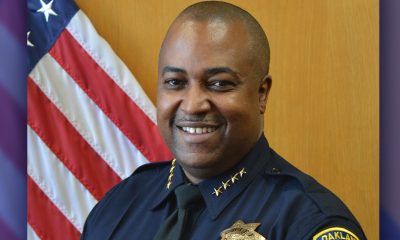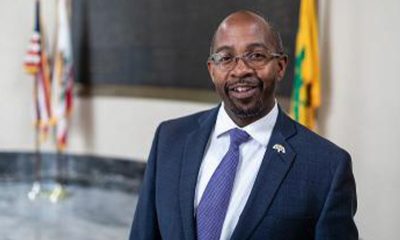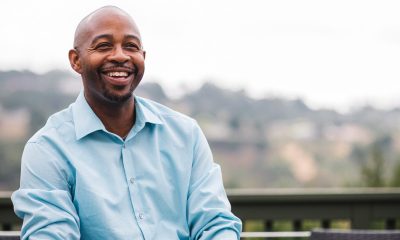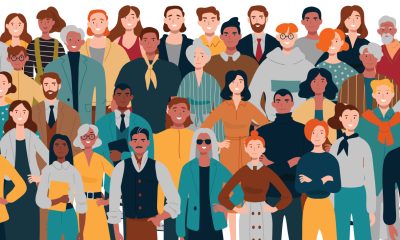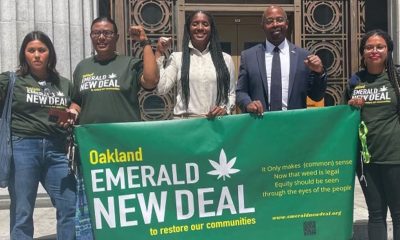Activism
Oakland Officials Present New Homeless Policy, Faces Criticism from Advocates
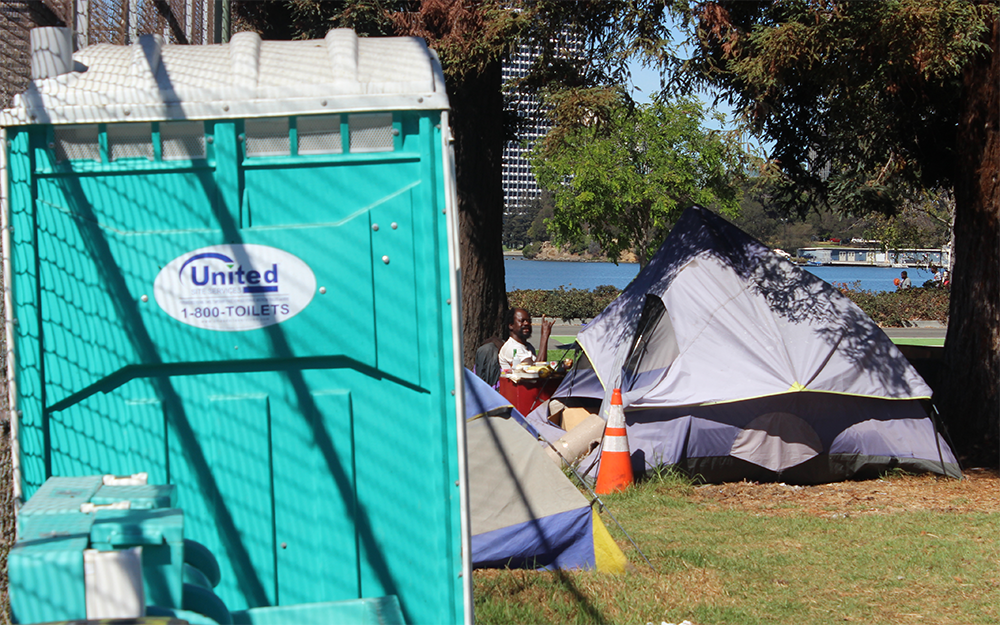
On Sept. 21, Oakland’s Homelessness Administrator Daryel Dunston shared recommendations with the Life Enrichment Committee (LEC) about new proposed regulations for managing areas where people experiencing homelessness live.
“In my humble opinion this policy is a step in the right direction, and I welcome the opportunity to strengthen the areas that may fall short in your estimation,” said Dunston during the meeting.
The Encampment Management Policy (EMP) outlined by Dunston and proposed by the City Administration, was largely based off of a report submitted in July that Joe DeVries, the director of Interdepartmental Operations, wrote.
The proposed EMP classified current areas where homeless people live as high-sensitivity areas and low-sensitivity areas. Language in the legislation suggests that low-sensitivity areas would be tolerated, but that, with some exceptions, living in high-sensitivity areas would not be tolerated.
“Encampments located within a high-sensitivity that are not approved by the City Council will be subject to a closure intervention,” reads the EMP.
While the EMP clearly defines high-sensitivity areas, low-sensitivity areas exist mostly by virtue of not being high sensitivity areas.
High-sensitivity areas exist within 150 feet of schools, within 25 feet of emergency shelter interventions, and within 50 feet of a protected waterway, residence, business, playground, public park, golf course, soccer field, baseball field, tennis court or basketball court.
“These are the high-sensitivity areas that we are recommending. And obviously, it will be up to the City Council to deliberate on these [distances],” said Dunston during the meeting. “Maybe you all decide that some of these distances are too narrow. Maybe you decide they could be expanded in some places.
Traffic lanes and bike lanes are also high-sensitivity areas.
“Essentially, everywhere else in the city that was just not described…would be become a low-sensitivity area,” said Dunston.
The EMP does not suggest any new services for homeless people but suggests expanding current services that already exist in some areas homeless people live.
These include hand-washing stations, portable toilets, weekly mobile showers, and waste collection. The waste collection does not include dumpsters and the city currently encourages residents to put their trash in piles.
City Council President Rebecca Kaplan and City Councilmember Dan Kalb both claimed they have heard complaints from residents that many toilets are not being serviced regularly.
Public comments on the EMP were mixed, with some residents supporting and some criticizing it. But homeless advocates, homeless advocate groups, and formerly and current homeless residents criticized it, claiming it expanded the criminalization of homelessness while not offering any new services.
They also criticized how the meeting was set up without including homeless people. While around 60 people gave public comments, only two people currently experiencing homelessness spoke.
Representatives from The Village, Love & Justice in The Streets, The Homeless Advocacy Working Group (HAWG), The Ella Baker Center, The Berkeley Free Clinic, and Shelter Oak all criticized the policy and suggested the LEC should not send the proposal to City Council, essentially asking them to ask the City Administration to create a new EMP. The Village, HAWG and Shelter Oak also sent e-mails to the city denouncing the current EMP.
“When taking into account all the locations listed as high-sensitivity areas, the policy would leave unhoused residents with effectively zero options as to where they can live without fear of displacement,” said Katie Kelly-Hankin of Love & Justice in The Streets. “Furthermore the policy lacks common-sense action steps to address the human rights crisis in our city, such as providing access to safe cooking facilities, safe electrical outlets, and offering hotel rooms to residents if and when encampments must undergo a deep cleaning.”
Kelly-Hankin asked that the LEC refer to suggestions outlined in an email ShelterOAK wrote to improve the EMP.
The LEC consisting of Kaplan, Kalb, and Councilmembers Lynette Gibson-McElhaney and Loren Taylor unanimously approved sending the proposed EMP to City Council but questioned whether the current low-sensitivity areas would offer enough and appropriate space.
They suggested exploring options for property, including unused county fairgrounds, which unhoused people could possibly live in. Kaplan specifically asked for the City Administration to offer a map of high-sensitivity and low-sensitivity areas to have a clear view of where homeless people could live under the policy.
The EMP is currently set to be brought to City Council on Oct. 20. It will not go into effect unless the council approves it.
Activism
Calif. Anti-Sex Trafficking Advocates Discuss Competing Bills, Strategies
Advocates from across California are challenging state officials and community leaders to support legislation that provides resources and services for survivors and victims of human trafficking, as well as assistance as they transition back into civil society. Some of those advocates are also calling for more effective state policy to curtail trafficking, a crime that has an outsized impact on Black children, particularly girls.
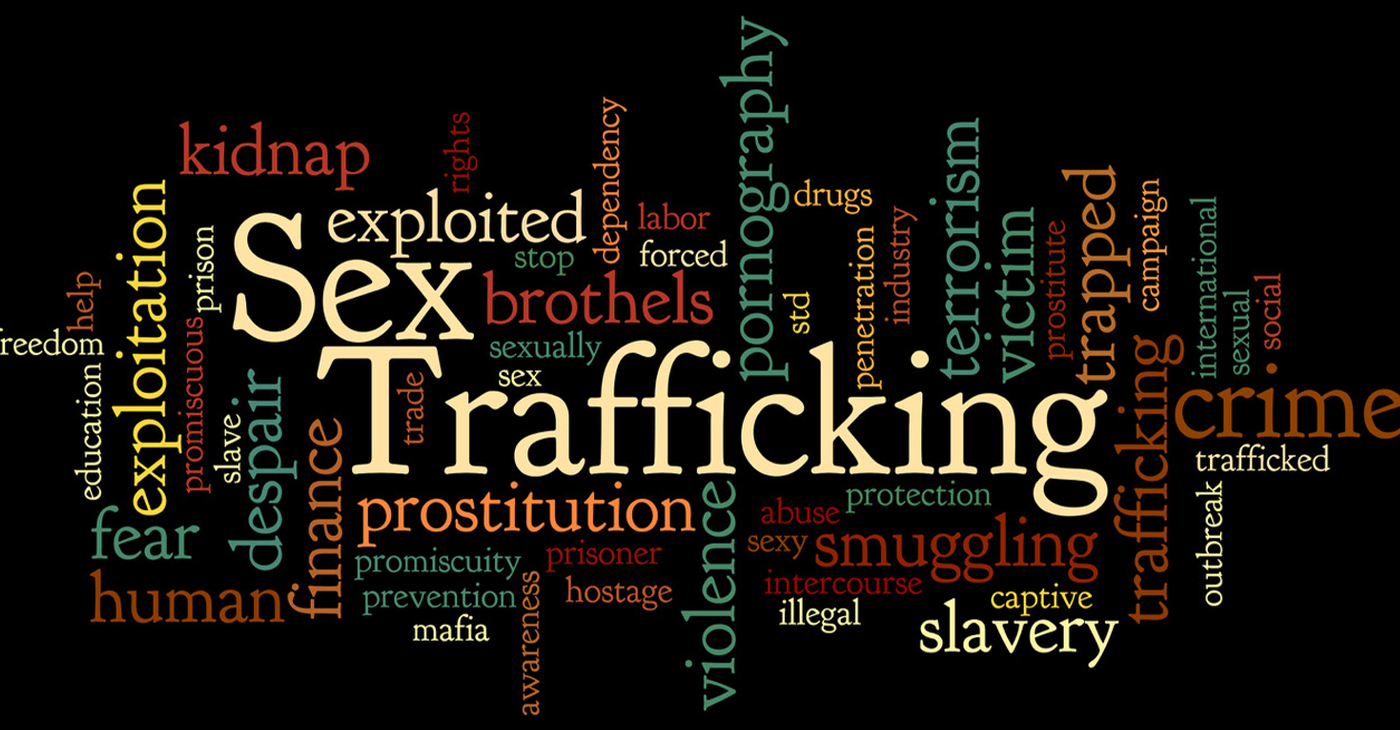
By Bo Tefu, California Black Media
Advocates from across California are challenging state officials and community leaders to support legislation that provides resources and services for survivors and victims of human trafficking, as well as assistance as they transition back into civil society.
Some of those advocates are also calling for more effective state policy to curtail trafficking, a crime that has an outsized impact on Black children, particularly girls.
According to the FBI, a report covering a two-year period found Black children accounted for 57% of all juvenile arrests for prostitution. In addition, 40% of sex trafficking victims were Black and 60% of those victims had been enrolled in the foster care system.
“It is time to hold the perpetrators who take advantage of our children accountable,” said the Rev. Shane Harris, a San Diego-based activist, former foster youth and founder of the Peoples Association of Justice Advocates, (PAJA), a national civil rights organization and policy think tank.
“It is time to send a thorough message that if you seek to buy a child for sex, you will pay the highest criminal penalties in this state,” added Harris who was speaking at a rally at the State Capitol earlier this month. Harris was speaking in support of Senate Bill 1414, authored by Sen. Shannon Grove (D-Bakersfield), which calls for people who buy sex from minors to be punished with a felony. The punishment includes a two-year prison sentence and a $25,000 fine.
Harris said the PAJA is the only civil rights organization in the state that supports SB 1414.
Harris urged other Black-led groups who favor anti-trafficking legislation more focused on criminal justice reforms (as opposed to stiffer penalties), to “join the movement.”
Many of those civil rights groups fear that SB 1414 could lead to the incarceration of more Black youth.
Those sentiments were echoed in a panel discussion organized by Black women advocates on April 26 to examine the cause and effects of human trafficking in California’s Black communities. The virtual event was hosted by the Forgotten Children, Inc, a faith-based nonprofit that advocates for survivors and victims of human trafficking through anti-trafficking campaigns and initiatives.
Panelists shared the psychological impact of sexual exploitation on youth and children in the long term.
Author and educator Dr. Stephany Powell shared statistics and information revealing that African American women and girls are the most trafficked nationwide.
Powell, who serves as the senior advisor on law enforcement and policy at the National Center on Sexual Exploitation said that national data indicates that sex trade survivors are disproportionately women of color. She stated that male survivors often go unnoticed because boys rarely report trafficked crimes.
Powell said that decriminalizing prostitution in California could increase human trafficking. She argued that Senate Bill 357, authored by Sen. Scott Wiener (D-San Francisco), which was signed into law in 2022 and legalized loitering for prostitution, caused a surge in street-level prostitution.
Panelist and psychologist Dr. Gloria Morrow shared opposing views on decriminalizing prostitution. She said that decriminalizing prostitution could help survivors gain access to state resources and support.
Despite opposing views, Powell and Morrow agree that the Black community needs resources and educational programs to address human trafficking.
Activism
Obituary: Social Justice Leader, the Rev. Cecil Williams, Passes at 94
On April 22, community leader and social justice advocate Reverend Cecil Williams died at his home in San Francisco surrounded by his loved ones, according to his family. He was 94 years old.
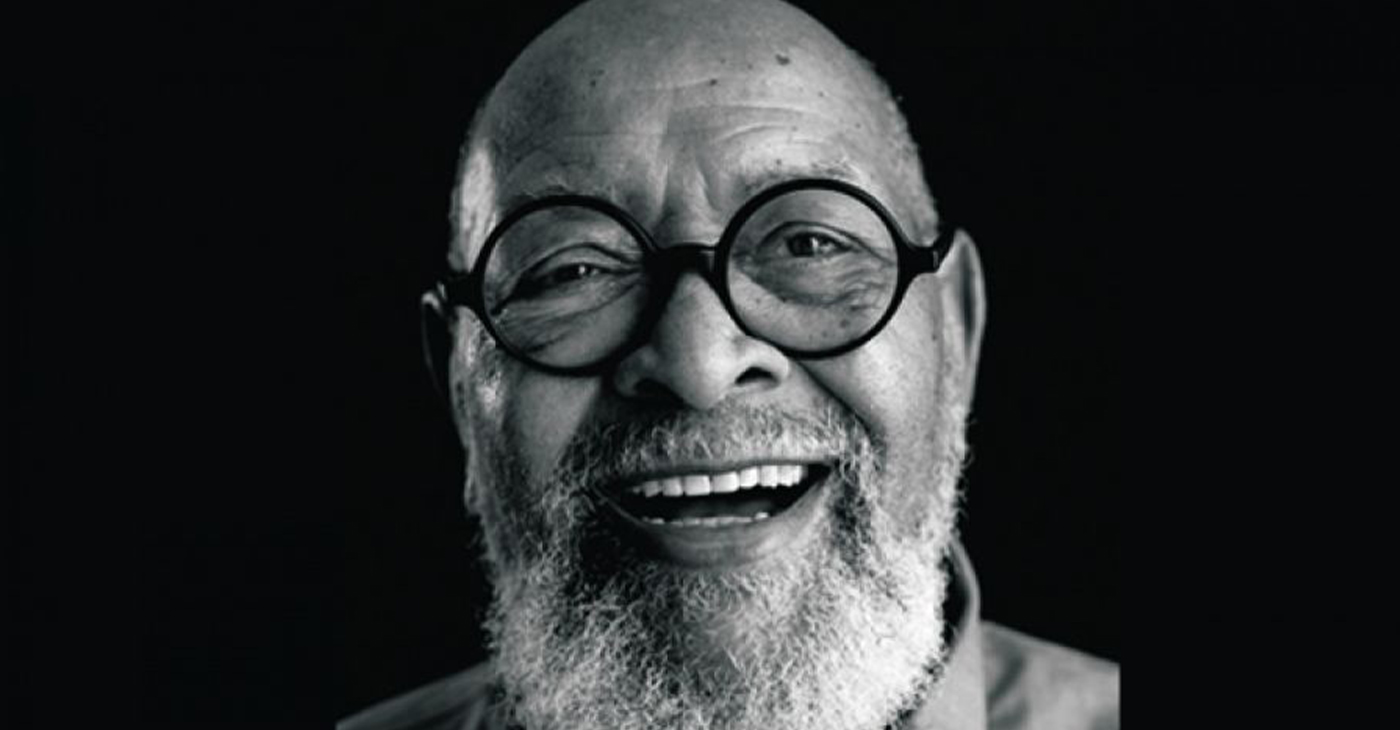
By California Black Media
On April 22, community leader and social justice advocate Reverend Cecil Williams died at his home in San Francisco surrounded by his loved ones, according to his family.
He was 94 years old.
The reverend was a civil rights leader who advocated for the equal rights of lesbian, gay, bisexual, transgender, and queer people in the Bay Area.
Williams was the head pastor of the non-denominational GLIDE Memorial United Methodist Church. The church welcomed individuals from the queer community and people struggling with homelessness, housing instability and substance use disorder (SUD).
Through his work, Rev. Williams attracted national attention. Prominent political and cultural leaders such as Maya Angelou, Bono, Oprah Winfrey, and Bill Clinton all attended church services at Glide.
Congressmember Barbara Lee (D-CA-12) said she is deeply saddened about the passing of her dear friend.
“The Reverend changed the lives of millions through radical love, support, inclusivity, and a commitment to service to the most marginalized,” Lee said.
Gov. Gavin Newsom said that the reverend inspired people across California to embody the values of generosity and acceptance.
Rev. Williams was, “a visionary leader whose legendary compassion and love for his community transformed the lives of people from all walks of life,” Newsom said.
Rev. Williams served as the chief executive officer of the Glide Foundation until his retirement in 2023.
Activism
Oakland Post: Week of May 1 – 7, 2024
The printed Weekly Edition of the Oakland Post: Week of May 1 – 7, 2024

To enlarge your view of this issue, use the slider, magnifying glass icon or full page icon in the lower right corner of the browser window. ![]()
-

 Community2 weeks ago
Community2 weeks agoFinancial Assistance Bill for Descendants of Enslaved Persons to Help Them Purchase, Own, or Maintain a Home
-

 Activism4 weeks ago
Activism4 weeks agoOakland Post: Week of April 3 – 6, 2024
-

 Business2 weeks ago
Business2 weeks agoV.P. Kamala Harris: Americans With Criminal Records Will Soon Be Eligible for SBA Loans
-

 Community2 weeks ago
Community2 weeks agoAG Bonta Says Oakland School Leaders Should Comply with State Laws to Avoid ‘Disparate Harm’ When Closing or Merging Schools
-

 Activism3 weeks ago
Activism3 weeks agoOakland Post: Week of April 10 – 16, 2024
-

 Community2 weeks ago
Community2 weeks agoOakland WNBA Player to be Inducted Into Hall of Fame
-

 Community2 weeks ago
Community2 weeks agoRichmond Nonprofit Helps Ex-Felons Get Back on Their Feet
-

 Community2 weeks ago
Community2 weeks agoRPAL to Rename Technology Center for Retired Police Captain Arthur Lee Johnson

